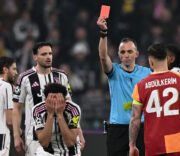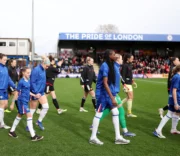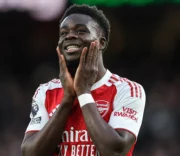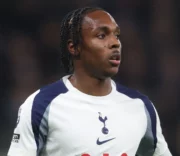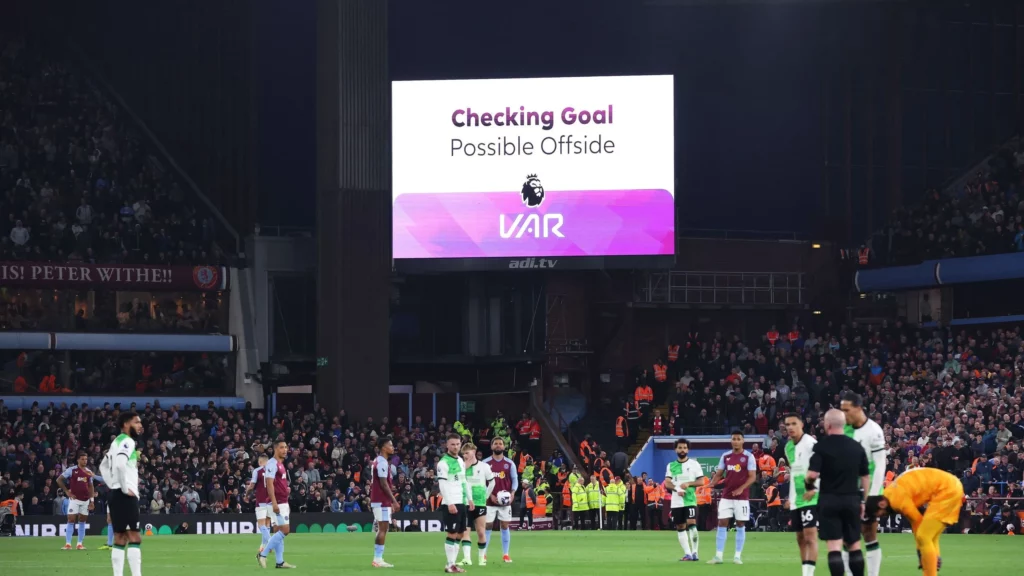
Premier League clubs are set to vote on the potential removal of video assistant referees (VAR) for the next season at their annual general meeting in June.
Wolves have formally submitted a resolution to the Premier League, prompting a vote among the 20 member clubs in Harrogate on June 6. The club contends that while VAR was introduced “in good faith,” it has resulted in “numerous unintended negative consequences that are damaging the relationship between fans and football.”
Since its introduction in 2019, VAR aimed to assist on-field officials with crucial match decisions. However, this season has witnessed several controversial incidents involving the technology. “The price we are paying for a small increase in accuracy is at odds with the spirit of our game,” Wolves stated.
Premier League Stands by VAR Amid Concerns, Plans Future Enhancements
The Premier League “acknowledged the concerns” about VAR but “fully supports” the technology, committing to collaborate with the referees’ body, PGMOL, for continuous improvements.
Any rule changes require a two-thirds majority, meaning 14 out of the 20 clubs must vote in favor.
Premier League clubs have already voted to introduce semi-automated offside technology for the 2024-25 season.
VAR Criticised After Controversies
A number of Premier League managers, including Wolves boss Gary O’Neil, have been vocal in their criticism of VAR and refereeing standards this season.
O’Neil received a one-match touchline ban in April due to his conduct near the referee’s room following a game against West Ham, during which Wolves had a late equaliser disallowed after a VAR check. Wolves chairman Jeff Shi also expressed doubts about the role of VAR after this game, stating that the club would be higher in the table “if it wasn’t for a number of incorrect or contentious decisions.”
Nottingham Forest issued a highly critical statement on social media after three penalty appeals were rejected in a 2-0 defeat at Everton last month. An independent Key Match Incident Panel later ruled that Forest should have been awarded one penalty from their three unsuccessful appeals.
One of the most high-profile VAR errors to date is Luis Diaz’s goal for Liverpool, incorrectly disallowed for offside against Tottenham in October. The Premier League acknowledged the incident, highlighting “systemic weaknesses in the VAR process” and noting that “key learnings and immediate actions” were taken.
In February, the league’s chief football officer, Tony Scholes, noted that while VAR had increased the number of correct decisions, the process was taking too long and negatively affecting the in-stadium experience. To improve transparency, referee’s chief Howard Webb regularly discusses notable recent incidents involving VAR, including audio between on-field officials and the VAR team, on the TV programme Match Officials Mic’d Up live.
Last month, Sweden became the only elite league in UEFA’s top 30 to reject VAR.
Premier League’s Stance on VAR
The Premier League fundamentally believes that removing VAR is not the right approach. Despite the frustrations faced by Wolves and other teams this season, the league maintains that eliminating VAR would increase the number of incorrect decisions and expose on-field officials to even more criticism.
Statistics from the Premier League indicate that the accuracy of decisions has improved from 82% before VAR to 96% currently. With the introduction of semi-automated offside technology next season, this figure is expected to rise further.
PGMOL head of refereeing, Howard Webb, advocates for greater in-game communication between VAR and fans and is urging the international rule-making body IFAB to implement more changes.
The Premier League also believes that removing VAR would negatively impact its global reputation. However, this perspective is unlikely to appease Wolves, who feel aggrieved by a series of poor decisions, starting from the opening weekend when Manchester United goalkeeper Andre Onana went unpunished for an apparent foul on striker Sasa Kalajdzic.
Many fans are also frustrated by the time taken to reach marginal offside decisions, even when the correct outcome is eventually reached.


